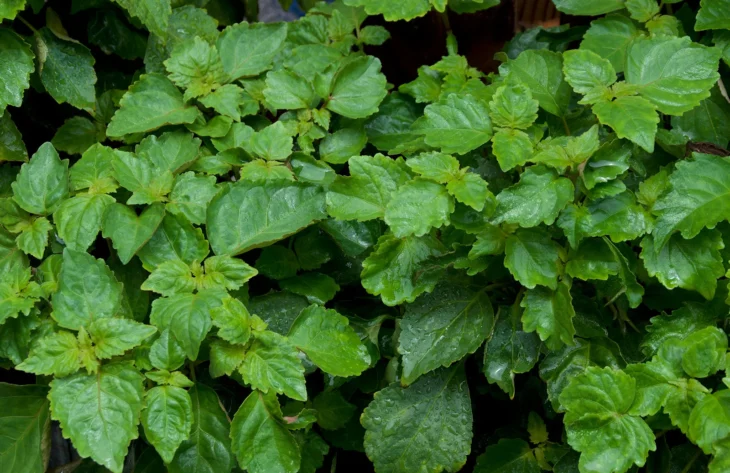Several different forms of bumps can develop on the skin’s surface as a result of the skin condition acne. Although they can develop anywhere on the body, the face, neck, back, and shoulders are where they most frequently occur. It most frequently affects older kids and teenagers going through puberty because it is frequently brought on by hormonal changes in the body.
The article provides information on the best cleansers for acne, including prevention tips.
Without therapy, acne will gradually go away, but occasionally, right when it starts to, more will arise. Even though severe cases of acne are rarely physically dangerous, they are more likely to cause anxiety, melancholy, suicidal thoughts, social phobias, and low self-esteem. You can pick between no therapy, over-the-counter remedies, and prescription acne treatments, depending on the severity of your acne.
Knowing More About The Skin Can Aid In Understanding How Acne Forms
The skin’s surface is covered in tiny holes that lead to sebaceous glands, or oil glands, that are located beneath the skin. Pores are the term for these holes. Sebum is an oily fluid that is produced by the oil glands. Through a tiny passageway known as a follicle, your oil glands deliver sebum to the skin’s surface. Dead skin cells are eliminated by the oil by transporting them through the follicle and up to the skin’s surface. Additionally, a little hair shaft emerges from the follicle.
When the skin’s pores become blocked with dead skin cells, extra oil, and occasionally bacteria, acne develops. Oil glands frequently create too much oil throughout adolescence, which raises the risk of acne. Acne comes in two primary varieties:
A whitehead also referred to as a pimple, is a blocked pore that closes but still protrudes from the skin. These seem like rough, white lumps. A pore that becomes blocked yet remains open is called a blackhead. On the surface of the skin, these take the form of tiny dark patches.
What Impact Does Nutrition Have On The Skin?
Diet is one factor that might impact the skin. Certain foods might increase your blood sugar more quickly than others. The body releases IGF-1, a hormone that regulates the effects of growth, when blood sugar levels rise quickly. Too much IGF-1 in your blood can cause your oil glands to produce more sebum, which can raise your risk of getting acne and inflammation.
What Meals Are Said To Be Good For Your Skin?
Eating complex carbohydrate foods with a low glycaemic index may lower your risk of acne and help in face cleanser for sensitive skin. When we call a complete carbohydrate, it means:
- Whole grains
- Legumes
- Unprocessed fruits and vegetables
Any food items having the following vitamins and minerals are befitted for the skin:
- The mineral zinc
- Vitamins A and E
- Chemicals called antioxidants
Some skin-friendly food choices include:
- Yellow and orange fruits and vegetables include carrots, apricots, and sweet potatoes.
- Spinach and other lush, dark-green veggies
- Tomatoes
- Blueberries
- Whole-wheat bread
- Brown rice
- Quinoa
- Turkey
- Pumpkin seeds
- Beans, peas, and lentils
- Sea fish
- Nuts
Everybody has a different body, and some people find that consuming certain foods aggravates their acne. Under the advice of your doctor, experimenting with your diet to find what works best for you can be useful. Any dietary allergies or sensitivities you may have should be taken into consideration while planning your diet.
Do Studies Suggest That These Meals Are Good For Your Skin?
- Low Glycaemic Food Plans
Recent research suggests that eating a low-glycemic or low-simple-sugar diet can help prevent and treat acne. In a 2012 study of Korean patients, researchers discovered that adhering to a low-glycemic diet for 10 weeks can result in appreciable improvements in acne.
In a 2007 study that was published in the Journal of the American Academy of Dermatology Reliable Source, researchers discovered that men’s acne might be improved and weight reduction could result by following a low-glycemic, high-protein diet for 12 weeks. To support these conclusions, further recent investigations are required. Additionally, studies imply that eating foods high in zinc may help to both prevent and treat acne foods rich in nutrients.
- Pumpkin seeds
- Cashews
- Beef
- Turkey
- Quinoa
- Lentils
- Seafood such as oysters and crab
In one investigation, which was published in the BioMed Research International Journal Trusted Source, researchers examined the connection between blood zinc levels and the severity of acne. A dietary mineral called zinc is crucial for the growth of skin and for controlling hormone and metabolism levels. Researchers discovered a connection between low zinc levels and more severe acne occurrences. To treat those with severe cases of acne, they advise boosting the diet’s zinc intake as face cleanser for sensitive skin.
- Vitamins A and E
Low levels of vitamins A and E appear to be related to severe cases of acne, according to research presented in the Journal of Cutaneous and Ocular ToxicologyTrusted Source.
They contend that increasing a person’s intake of foods rich in these vitamins may help people minimize the severity of their acne. Before taking vitamin A pills, see your doctor. Your major organs may suffer long-term damage from vitamin A toxicity.
- Omega-3 Fatty Acids As Well As Antioxidants
Certain vegetables and sources of animal protein, such as fish and eggs, contain a particular form of fat called omega-3s. Chemicals known as antioxidants work to remove harmful poisons from the body. Omega-3s and antioxidants are thought to decrease inflammation when used in conjunction.
The majority of studies confirm the link between higher omega-3 and antioxidant intake and a decline in acne. People who took a daily omega-3 and antioxidant supplement were able to lessen their acne and improve their mental health, according to studies from 2012 Trusted Source and 2014 Trusted Source. Overall, more study is required.
Wrapping Up
There is no proven food “cure,” despite the fact that certain research suggests that certain foods may help treat best cleansers for acne and improve skin health. Before making any dietary changes, it’s critical to speak with your doctor to make sure they won’t have a detrimental effect on your health. The greatest diet recommendation for treating acne seems to be eating a clear, balanced diet full of fresh fruits and vegetables, lean protein sources, and other anti-inflammatory foods.











You must be logged in to post a comment.